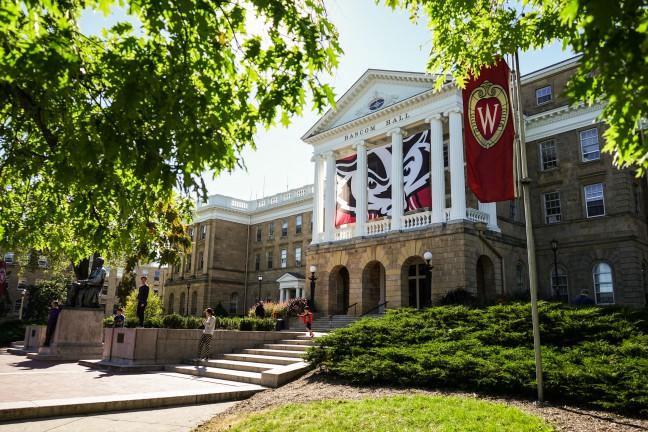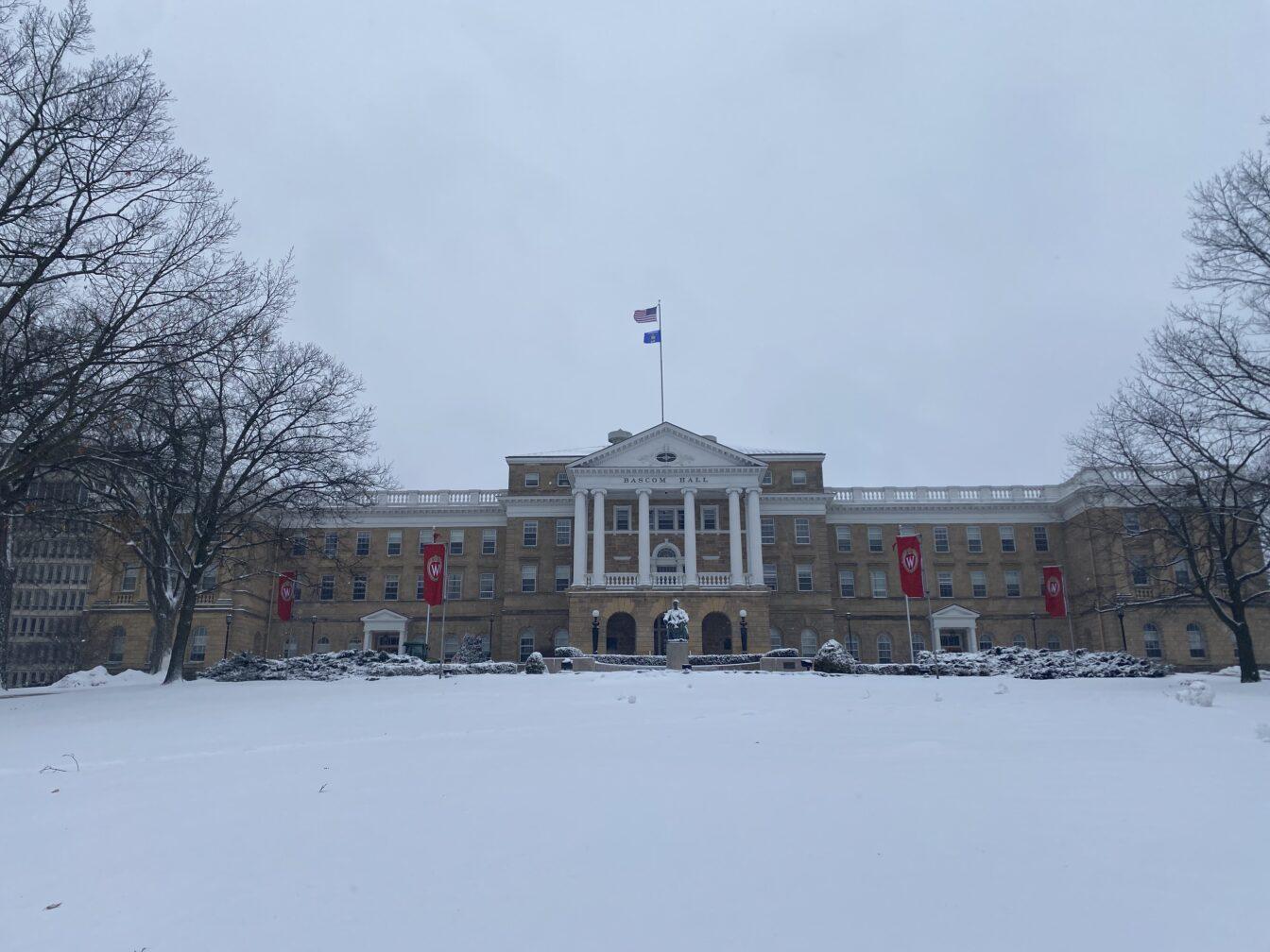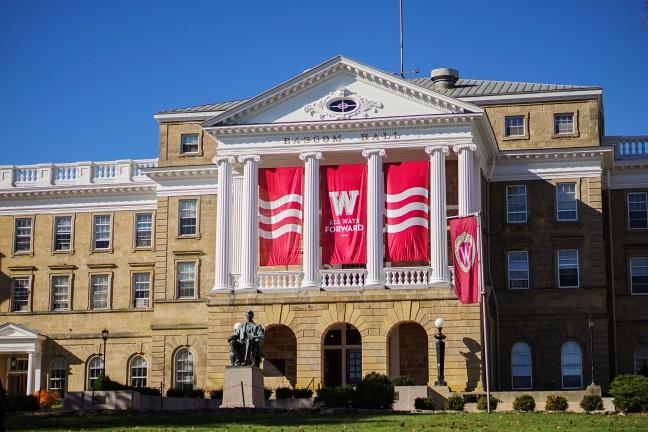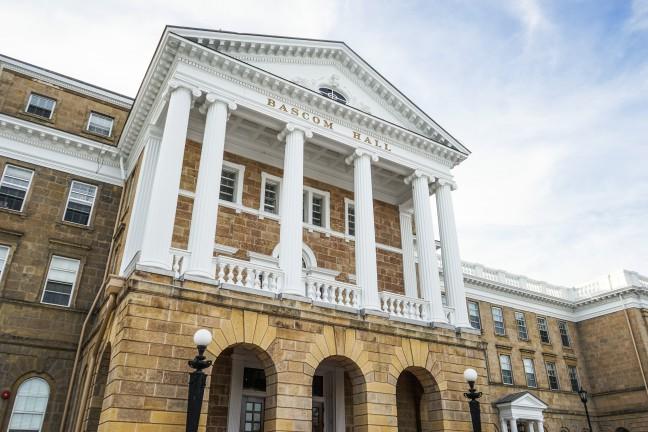The Badger Herald Editorial Board deemed these stories important to watch during the spring 2020 semester.
Resisting Exclusion

The story:
In September 2019, a now infamous homecoming hype video featuring almost exclusively white students took over campus conversations from our newspaper’s headlines to dinnertime chats. The video’s response led to the creation of the Student Inclusion Coalition, often shortened to SIC of UW, an organization expecting and demanding the University of Wisconsin do better with issues of diversity and inclusion.
There is no reason to believe these tensions and stories were resolved by the end of last semester. When a Multicultural Learning Community house fellow was removed after white students complained about feeling uncomfortable in their living space, SIC of UW appeared again to demand justice and transparency in the proceedings. This issue has yet to be resolved publicly. As a January 1 New York Times article reiterated the headlines of last semester to a national audience, it is unlikely the scrutiny on UW’s homogeneous community will lessen.
What to watch for:
The university is known for its past activism, and SIC of UW seems like the heir apparent to this legacy in our time as students. The Public History Project, as it begins in earnest this school year, seeks to amplify the voices of those who have experienced and persevered against prejudice and discrimination at the University of Wisconsin.
Current organizers of groups like SIC of UW are turning to this renewed interest in the past to learn what failed and succeeded on the road to where the university community is now and to honor those who came before them. For example, in the official list of demands published on SIC of UW’s social media accounts after its formation, one demand called for honorary degrees for the students expelled as a result of the 1969 Black Student Strike at this semester’s Commencement ceremony.
So, while new headlines of incidents of difference, exclusion and resistance are almost inevitable on campus this semester, also keep a keen eye for new findings and progress in the Public History Project. Perhaps as more of the university’s past is uncovered, these rediscovered pieces of history will invigorate new causes and movements to create a more inclusive campus.
UW System President search

The story:
In early November 2019, Vice President of the University of Wisconsin System Board of Regents Michael Grebe announced members of the Search and Screen Committee tasked with identifying a successor to President Ray Cross. The search committee includes four regents, a student regent, a former regent, two chancellors and a provost. There has been an uproar over the unusual and precedent-breaking composition of the committee.
And for good reason — there is no faculty nor academic staff on the committee. The only student is representing the Board of Regents, not students. Even if he admirably tries to do both, it cannot be denied that there is a conflict of interest there. It would seem that the three biggest and principal groups of each university — faculty, academic staff and students — are being ignored.
“The very people who would benefit most from having a voice at the table — faculty, staff and students — are the ones deliberately being excluded,” State Rep. Katrina Shankland, D-Stevens Point said in a letter to the committee. “Sitting in a closed-door room as part of the search and screen committee going through resumes, going through interviews, is very different than a listening session where everyone gets to say a few words.”
What to watch for:
At the moment the Board of Regents is attempting to appease all those it has shunned from the process by holding listening sessions. It is important to note when these sessions are, how they are conducted and if the concerns expressed by stakeholders are being adequately addressed by the search committee. If they are not, one can expect to see further animosity between the Board of Regents and the wider UW System.
Restructuring Madison City Council

The Story:
After nearly two years of analysis, the City of Madison’s Task Force of the Structure of City Government recently released a report detailing 40 recommendations that would fundamentally alter Madison city government to make it more efficient and more equitable. According to the city’s Finance Department, implementing these changes may come with a cost of $2.2 million each year.
Though the potential price tag may be enough to scare many Madisonians off, the urgency for these changes is equally troubling.
“The city’s current government structure is an impediment to full participation and representation and, therefore, that the city’s structure is fundamentally unfair to a large portion of the city’s population, including, most notably, the city’s residents of color and low income,” said the final report by the Task Force.
One of the most significant changes the report recommended was transitioning to a smaller city council where alders serve full-time. In its current form, the city council is comprised of 20 alders who work part-time, however, alders who are retired or who have flexible work hours tend to spend more time on city business than others. The report recommends that shrinking the council to 10 alders who work full-time will ensure equal levels of representation for every aldermanic district because each alder can dedicate the same amount of time to their districts. Other recommendations include streamlining committees, a robust technology plan and other initiatives aimed at improving resident engagement.
What to watch for:
The report’s recommendations will be reviewed by city committees before the city council can act on them. Some recommendations can be implemented through resolutions or ordinances, but others may require voters to approve them via referendum. As spring elections approach quickly, watch out for which recommendations receive support and how they implement the structure of the city government to adequately address your concerns at the ballot box.
Wisconsin Election Commission voter purges

The story:
In December 2019, the New York Times reported that about 200,000 Wisconsin voters were ordered dropped from state voting rolls in response to the voters being flagged by a computer algorithm as having moved, and therefore potentially ineligible to vote. Those who were to be purged were said to have not responded to mailings from the state to verify their status or residences.
According to the Wisconsin State Journal, the conservative Wisconsin Institute for Law and Liberty filed a lawsuit against the Wisconsin Elections Commission in November, arguing it violated state-mandated policies by deciding to not begin removing nonresponsive voters from rolls “for another year or two.” According to WSJ, this came after previous errors that resulted in the removal of eligible voters. However, the Times reported WILL argued that because Wisconsin law requires removing all voters who fail to respond within 30 days to mailed notices, the delay was illegal.
In Ozaukee County, the Times reported that a judge ordered the voters immediately removed from the rolls. After the WEC deadlocked and split 3-3 along party lines in obeying the order, the judge held the panel’s Democrats in contempt of court. According to the Times, an appellate court paused both the purge and the contempt finding.
The Milwaukee Journal Sentinel found, in an analysis of the voters that were believed to have moved, over half lived in municipalities Hillary Clinton won in the 2016 election. The highest concentrations were frequently in college towns and Wisconsin’s largest cities, Milwaukee and Madison. The Times also noted that a disproportionate share of people who move, like young people or less wealthy people, tend to vote Democratic. In battleground Wisconsin, Donald Trump won the state in 2016 by less than 23,000 votes.
What to watch for:
As courts across Wisconsin issue rulings on the topic, watch out for what that means for you and your vote not only in the upcoming primaries but inevitably, the 2020 presidential election.
State Supreme Court Election

The Story:
This year, voters will determine which candidate will earn a 10-year term on the Wisconsin Supreme Court. Incumbent Justice Daniel Kelly announced his run last year and will be challenged by Marquette University Law professor Ed Fallone and Dane County Circuit Judge Jill Karofsky, according to the Wisconsin State Journal.
The Wisconsin Supreme Court is currently composed of a 5-3 conservative majority, and while this race will not change the majority, the results of this election will impact the race in 2023. Kelly, who is backed by conservatives, would create an even bigger majority for conservatives until at least 2025, while both Fallone and Karofsky would bring the majority down 4-3, allowing liberals to possibly take the majority in 2023, WSJ reported.
Kelly was appointed to the court in 2016 by former Republican Gov. Scott Walker to replace retiring Justice David Prosser Jr., and believes being appointed would help ensure the court remains faithful to the state and U.S. Constitutions. For Karofsky, a term would mean avoiding what she views as perceived corruption by Kelly. Fallone argues he would bring intellectual diversity to the court and would help mend the scars caused by its increased partisanship, according to the WSJ article.
What to watch for:
The primary will be held Feb. 18, where the top two most voted for candidates will move on to the election on April 7, the same day as the Wisconsin presidential primary. As the election nears, watch out for which candidates move past the primaries and what that could mean for the future majority of the court.
Special election for the 7th Congressional District

The Story:
In 2020, a special election will take place in the U.S. House for a seat representing Wisconsin’s 7th Congressional District. This election is to fill the seat occupied by former U.S. Rep. Sean Duffy, R-Wausau, who has stepped down slightly before the birth of his ninth child, who was born with several health complications.
Gov. Tony Evers previously scheduled the primary to be on Dec. 30, 2019, but later changed the date due to conflicts between state and federal laws. Currently, the primary election is scheduled for Feb. 18 and the general election will be May 12. The change gives candidates more time to campaign, however, they will also be competing for publicity and media attention with the Democratic presidential candidates and candidates for the Wisconsin Supreme Court in the upcoming spring elections.
As of Jan. 16, the current primary candidates the Democratic Party are Lawrence Dale and Tricia Zunker. The candidates for the Republican Party are Jason Church and State Sen. Tom Tiffany, R-Minocqua.
What to watch for:
Though the 7th Congressional district seems far away from the blue bubble of Madison, the winner of this election still has room to shake things up for Wisconsin’s congressional delegation. Considering Wisconsin’s status as a swing state, whatever party wins this seat in May could be favored by political pundits and evening news programs as the winner of the 2020 presidential election. Follow this election as closely as you would the one in November — although we Madisonians cannot vote, we will be impacted nonetheless.
The Badger Herald is an experiment in student media, and we are fiercely committed to the importance of truth-telling and amplifying student voices. This task is of lofty importance and cannot be done alone — whether it be as a writer, copy editor, photographer, videographer, designer or coder, join The Badger Herald and help us tell the stories that matter to students. Email us at [email protected] or follow our social media for announcements on new member meetings.
The Editorial Board serves to represent the voice of the Badger Herald editorial department, distinct from the newsroom, and does not necessarily reflect the views of each staff member.


















